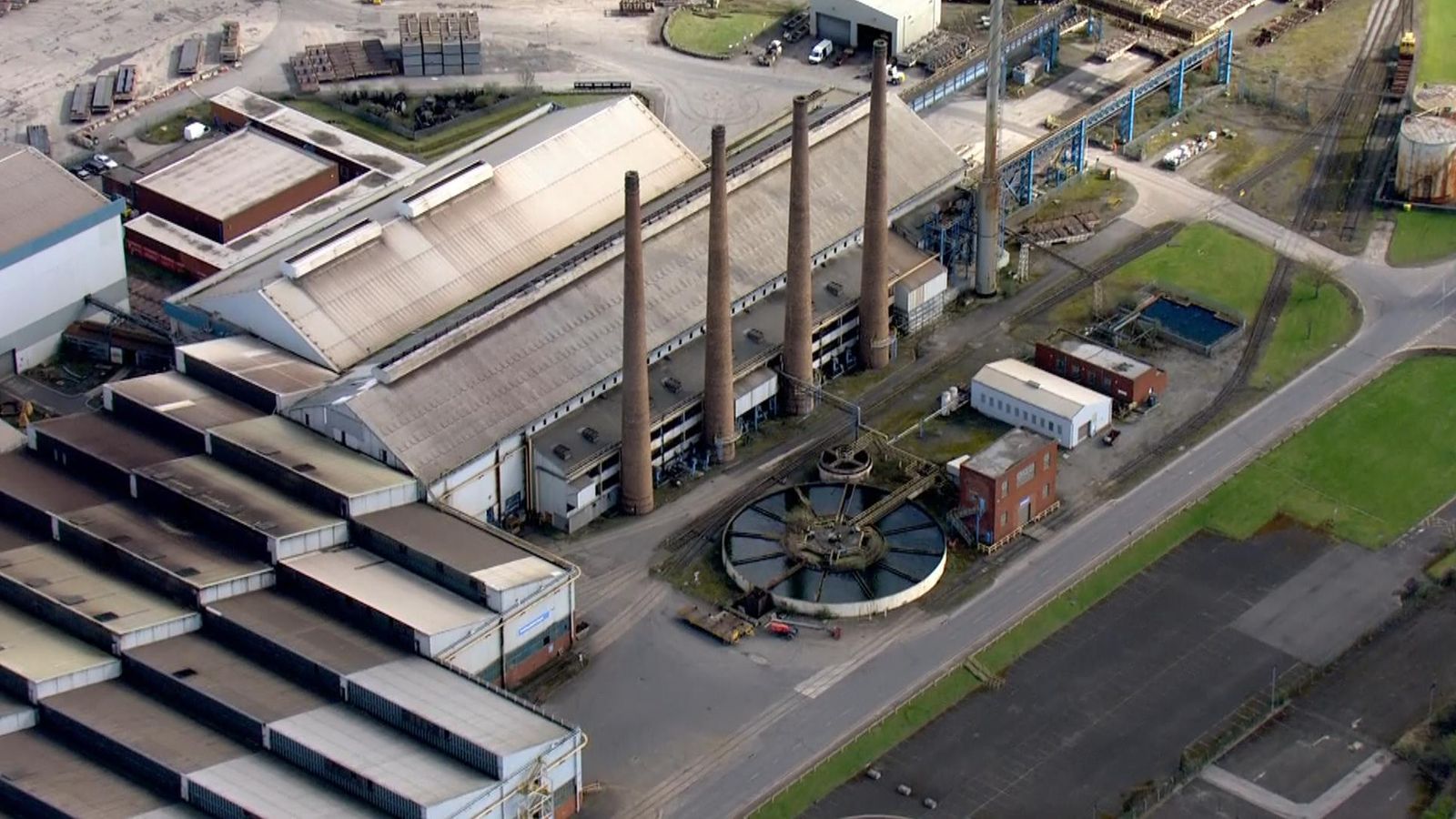Steel unions have called on the government to provide workers with a “comfort blanket” of state support should Liberty Steel collapse as a consequence of financial difficulties at Sanjeev Gupta’s GFG Alliance group.
The call came as MPs raised questions about the fate of workers at 12 UK plants, with one accusing Mr Gupta of running “a potential Ponzi scheme”.
Around 5,000 jobs are in peril following the collapse of GFG’s principal lender, the controversial supply-chain finance specialist Greensill Capital, which went into administration earlier this month.
GFG insists it has sufficient funding to meet its “immediate needs” but the government is sufficiently concerned for Business Secretary Kwasi Kwarteng to have met with GFG bosses and the unions several times as Mr Gupta scrambles to refinance his empire.
Greensill collapsed after investors lost confidence in its model, which relied heavily on loans to GFG based on future invoices.
In court documents Greensill claimed it had $5bn of exposure to GFG which it said was experiencing financial difficulties.
Rotherham is home to one of Liberty’s largest plants, employing more than 650 people with at least twice as many again reliant on it in the supply chain and ancillary businesses.
Staff at the plant have been on furlough since a few days before Greensill’s collapse in early March, and are scheduled to return on April 14.
Unions and workers told Sky News they are used to living with uncertainty – GFG’s troubles come just five years after Mr Gupta purchased the operation and its sister plant in Stocksbridge from Tata Steel
But they warned the collapse of GFG would be hugely damaging to the town and urged the government to act.
Chris Williamson of the Community union said workers needed to know the government will step in if required.
“That’s the comfort blanket we need, but obviously we’ve got to let the time evolve and at the end of day they are a private company.
“I think the government is monitoring the situation, but we’ve got to give Sanjeev [Gupta] time.
“We’re used to it.
“It’s been like a rollercoaster waiting to hear anyway.
“One minute you’re shooting for stars, next minute you’re talking of job cuts, it seems like that all of the time but hopefully we’ll pull through this.
“We’ve faced worse, I think. I think we will pull through.”
Matt Szczepkowski has worked at the plant for ten years and is a team leader in the furnaces.
He said he and his colleagues have been left uncertain and relying on media reports for reassurance.
“We don’t know a great deal of what’s happening, we don’t know if its a viable business anymore, we don’t know if the government is going to step in to help us out, it’s just all hearsay and we’re just waiting to find some clarification on what’s happening,” he said.
“If Liberty did go bust I don’t know what else we would be able to do because obviously jobs are sparse at the minute, so I don’t really know what other industry we’d go into.”
The issue has political as well industrial implications.
The collapse of a major employer in a strategically sensitive industry with plants across largely northern constituencies would provide one of the first post-Brexit tests of the government’s commitment to re-balancing the economy.
The business department is understood to be considering providing Liberty with similar support to that which benefited British Steel during its six month search for a buyer should it go bust.
That cost the taxpayer £500m before a buyer was found.
The government is unlikely to act unless Liberty goes into administration, and business secretary Kwasi Kwarteng, called to Parliament to answer an urgent question from Labour’s shadow Lucy Powell, only hinted at offering support.
“As far as specifics of government intervention, I have said repeatedly that it is not appropriate now, given where we are, for me to disclose anything of that kind, but of course this is an ongoing situation that we are monitoring extremely closely,” he said.
While several MPs with Liberty plants in their constituencies endorsed calls for government support, Conservative Richard Fuller asked if GFG’s reliance on financial engineering from Greensill Capital warranted investigation.
“An acquisition strategy based on supply chain financing arrangements, plus a future receivables derivative scheme, plus an additional month’s cash-flow, and a liberal mix of state guarantees has the characteristics of a potential Ponzi scheme,” he said.
“Has my right honourable friend been able to ascertain the facts here, or is this an issue for investigation by the Serious Fraud Office?”
Mr Kwarteng agreed there were “very serious questions about the business model”.
In a statement GFG said: “GFG Alliance as a whole is operationally strong and we are benefiting from strong markets in steel, aluminium and iron ore.
“While Greensill’s difficulties have created a challenging situation, we have adequate funding for our current needs.
“Discussions to secure alternative long-term funding continue to make good progress and while this takes place we have asked all of our businesses to manage cash carefully.
“We are grateful for customers’ and suppliers’ support in this work which comes alongside our aim to secure additional working capital facilities to support the business and our use of the furlough scheme to support employees.
“We will continue to work closely with the unions and our employees to identify the most effective ways of supporting the business.”






















